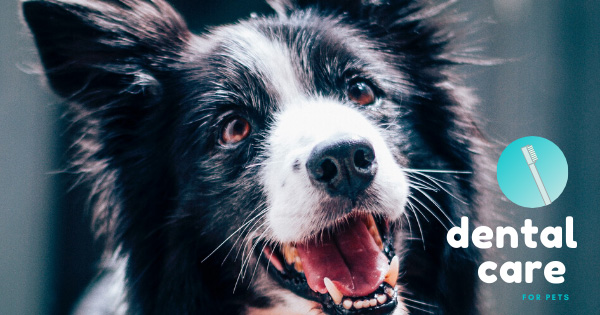
Imagine how your teeth would look and feel if you never brushed them. That would mean constantly having lots of plaque, bad breath, and an unpleasant taste in your mouth. Your pet’s teeth are no different. The majority of pet owners maintain good healthcare and vaccination practices, but unfortunately, proper dental care is often overlooked. According to the American Veterinary Dental Society, 80% of dogs and 70% of cats show symptoms of oral disease by the age of three. Dental disease has serious consequences, so it is important to maintain dental hygiene for your pets to keep them healthy and happy.
Common Pet Dental Problems
While pets don’t often get cavities, they can develop the same dental problems that people do. This includes periodontal disease, gum disease, broken teeth and roots, cysts or tumors in the mouth, and dental abscesses. Gingivitis and periodontal diseases are the two most common pet dental problems. They affect the gums, teeth, and structures that support your pet’s teeth. Gingivitis begins with plaque building up on the teeth. It is the first sign of periodontal disease and will make gums appear mildly red.
Periodontal disease starts with plaque that hardens into tartar. When tartar is above the gum line, as is the case with gingivitis, it is easily visible and removable. However, plaque and tartar beyond the gumline is damaging and can cause infections, inflammation, and damage to the tissue and jawbone. Many pets with periodontitis are at risk of losing bone density in their jaw. In advanced stages of periodontal disease, the gums will appear red, swollen, receded, show deep pockets, and bleed easily. Consequently, teeth will also become loose and most likely fall out.
Periodontal disease is an invitation to other health problems for your pet. If periodontal disease is left untreated, harmful bacteria in the mouth can find its way to the lungs, liver, kidneys, and heart where it can be potentially harmful and life-threatening.
Signs of periodontal disease in pets include:
- Drooling
- Bad breath
- Broken or loose teeth
- Refusal or inability to eat
- Weight loss
- Lethargy or inactivity
- Discharge from the nose or eyes
- Swollen, red or bleeding gums
- Pawing at the face
Periodontal disease is irreversible and worsens as your pet grows older. If gingivitis is treated before it progresses to periodontal disease, then the damage can be reversible. Early detection and treatment can help slow the progression. The treatment of periodontal disease involves radiographs and thorough dental cleaning. Your vet will make recommendations based on the state of your pet’s teeth and their overall health.
Tips: At-Home Dental Care for Pets
The prevention of oral diseases involves frequent removal of plaque and tartar. Daily brushing of your pet’s teeth is the best way to prevent dental disease or to slow down the recurrence of dental problems. Get your puppy or kitten used to a tooth-brushing regimen as early as possible. Daily brushing is most effective but if not possible, brushing several times a week will also help.
There are many dental products in the market that claim to improve pets’ dental health, but not all of them are safe or effective. Avoid products containing xylitol, as it is highly toxic to animals. Human toothpaste should also never be used to clean your pet’s teeth and gums. You can also provide your pet with dental treats and toys to clean their teeth and freshen their breath, look for those with the VOHC approval. This can be especially helpful if your pet does not like you brushing their teeth.
Talk to your vet about dental products, diets, and treats you’re considering for your beloved pet or simply ask for your vet’s recommendations.
Regular exams and professional dental cleaning play an important role in maintaining the dental health of your dog or cat. Call Naples Coastal Animal Hospital at (239) 500-0105 to book an exam. We’ll discuss options for home dental care and show you the techniques for proper brushing.
